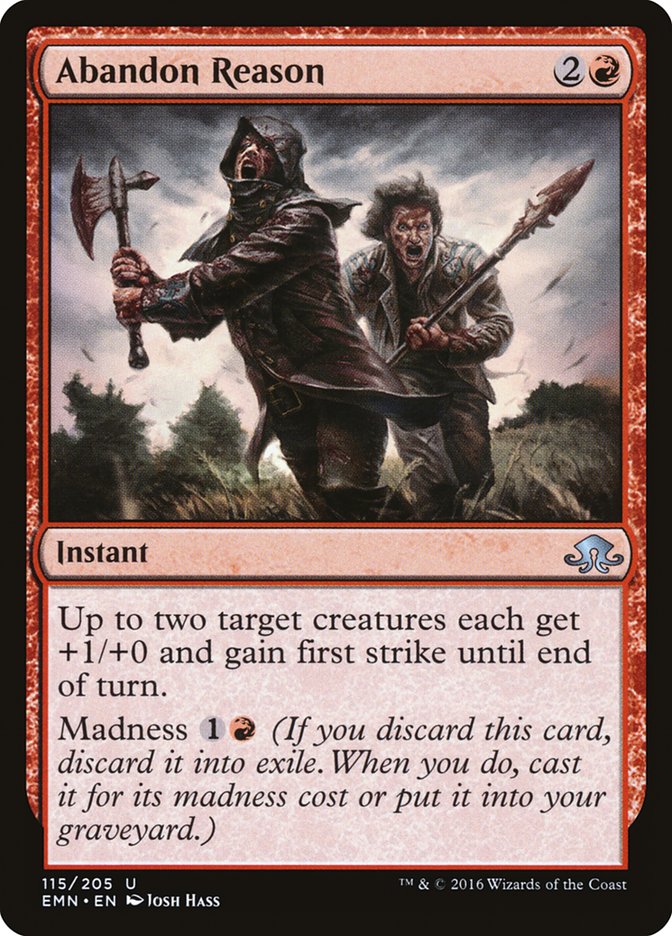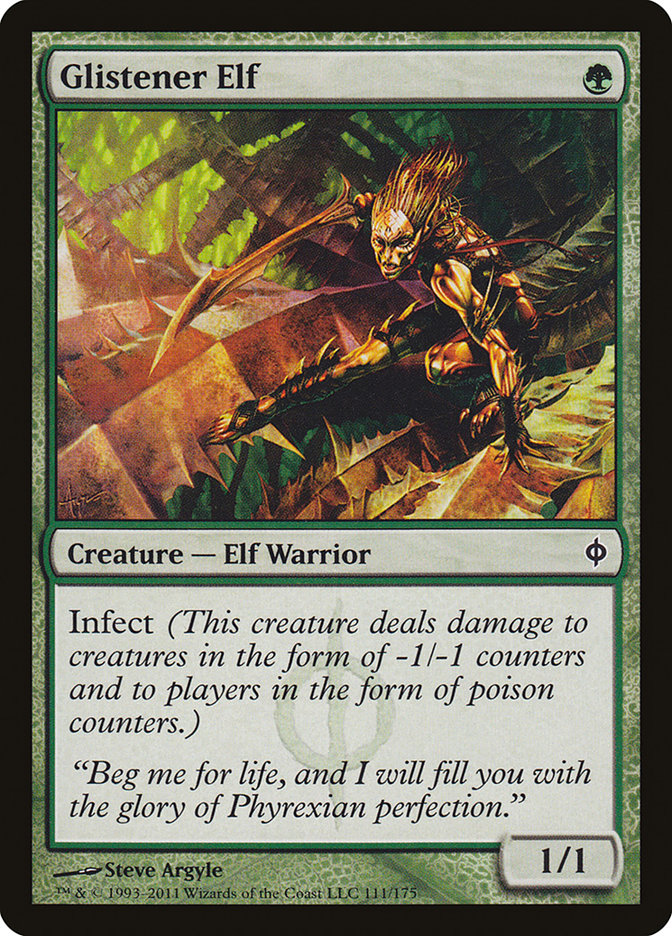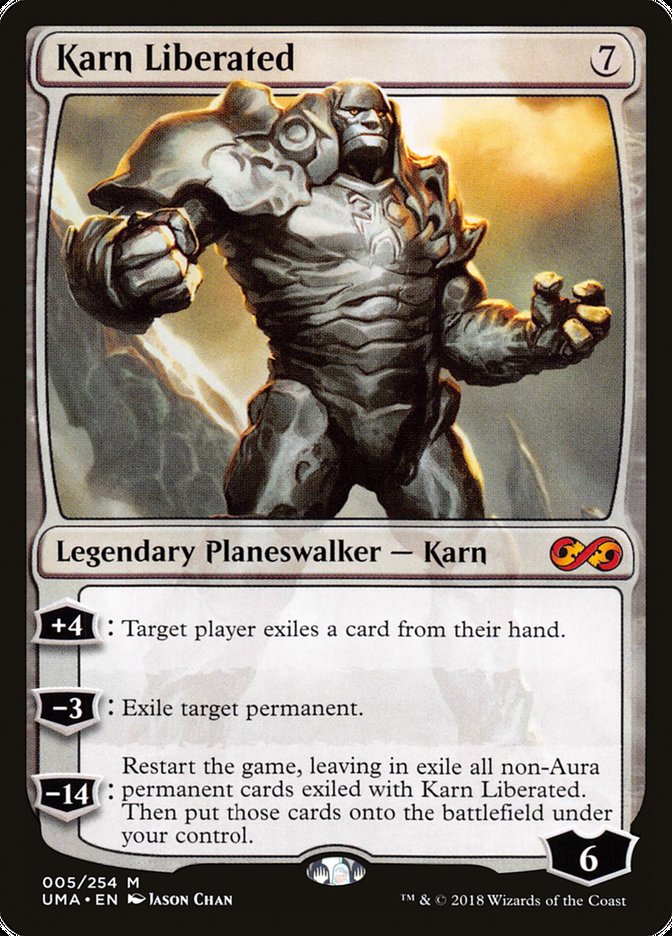When working with, testing, and constructing decks in Magic, one of the
most important elements to analyze is how the deck you’re working with
stacks up against the other popular decks within the metagame.
More often than not, the deck you choose to play in Constructed Magic has a
mix of good, neutral, and bad matchups. One of the considerations to take
into account when selecting a deck for a tournament is finding a strategy
that has more “good” and “neutral” matchups in the format compared to the
“bad” ones. However, over the course of a fifteen or sixteen round
tournament like an Open or Invitational, it’s unlikely you will make it
through the entire tournament without running into a matchup or three that
on paper are nothing short of miserable. An observation I’ve had ever since
I started attending SCG Tour Open events regularly is that the attitudes
and approaches to handling bad matchups in Constructed Magic usually
involve one or more of the following phrases:
-
“Lost the matchup lottery this round!”
-
“Yeah, there was nothing I could do, that matchup was
unwinnable!”
- “Their deck is designed to beat mine and nothing else!”
These kinds of comments are ones that I have heard time and time again at
Magic tournaments, but only recently took into consideration. As a player
who is constantly trying to improve every aspect of their game, I value the
importance of mental and emotional strength quite highly when it comes to
Magic. When it comes to bad matchups, I believe that the average Magic
player could be a taking a better approach when it comes to tackling a
matchup that ranges from challenging to a downright David and Goliath
scenario (think Martyr Proc vs. Burn in Modern or Sneak and Show vs Lands
in Legacy).
Before I delve into the Do’s and Do Not’s of approaching bad matchups,
let’s go over a few ways that one deck can overpower another.
The deck you are playing against “goldfishes” faster than yours.
In Standard, the concept of bad matchups still applies, but to a lesser
extent given the flatter power level of the card pool. In formats like
Modern or Legacy, there tend to be more “80-20” matchups, matchups where
both decks have no interest in interacting with one another and instead try
to end the game by turn 4 or so, but one has a significantly easier time
winning the game very quickly if unimpeded.
For example, the Infect versus Tron matchup tends to be heavily lopsided in
Infect’s favor. This is because Tron tends to spend the first 2-3 turns
setting up and completely ignoring what the opponent is doing before
quickly catching up with an enormous threat. This plays poorly against
Infect, an archetype that is more than happy to play against a deck that
leaves their creatures alone and can very easily present a turn 3 kill.
Your primary strategy interacts poorly with your opponent’s.
Essentially the opposite of point #1, and arguably the most obvious one, is
how some deck’s interactive elements become much stronger (or, much worse)
in some matchups over others. For example, certain matchups like Miracles
versus Dimir Death’s Shadow in Legacy heavily favors Miracles because cards
like Swords to Plowshares and Terminus interact so well with what Death’s
Shadow’s core gameplan is. On the flip side, those same cards in Miracles
are dead as a doornail against decks like Storm. Bad matchups that exist in
the context of one or both decks interacting with one another fall into two
categories – the answers line up super well for the favored deck, or the
answers do not line up or are complete blanks for the unfavored.
Deck A’s “average” draw cannot compete with Deck B’s “average” draw.
Much like there are three general categories of matchups (good, bad, and
neutral), there are three general levels of efficiency a deck’s strategy
employs in a given game: failure, average, and good (good in this scenario
focuses on insane opening draws). A consideration to make when determining
who the favored and who the unfavored is in a given matchup is how both
decks operate and interact with one another when both decks have their
“average” draw. When both decks are both hitting their land drops and
deploying their strategies with little to no hiccups, how much is one
strategy favored over the other? For example, the Humans versus Spirits
matchup, in general, tends to favor Spirits. Humans can win, but it usually
requires an above average draw involving presenting a turn 4 or 5 lethal
attack, which does not happen for Humans in the average game. The average
amount of turns played in a game involving the aforementioned decks
frequently extends itself into the sixth and seventh turn, where Spirits
has been able to build up a formidable flying army that gets to dictate the
pace of combat, at which point Humans has little recourse in the way of
attacking or blocking. When one deck tends to need its “god draw” to find a
path to victory, the matchup is likely not a good one for that strategy.
With the above three points taken into account, there’s still something to
be done to try and scrape some percentage points back in your favor.
The “DO”s
-
DO
study the matchup and how it operates. Never underestimate the
power of knowing how to play a matchup better than your opponent.
Even if the matchup is bad on paper, if you understand your role
and everything you can do in your power to win the game, it allows
you to outplay your opponent by making less mistakes and giving
yourself an avenue to win games you otherwise would not be able to.
This includes:- a.) Identifying which cards in each deck matter.
-
b.) What’s the “pivotal turn” of the game (the turn that tends
to decide the momentum of the game for one player or the
other)? - c.) How does said turn tend to play itself out?
-
d.) What must go right for you to win / what must go wrong for
your opponent to win (what’s the “perfect world” scenario)?
-
DO,
if applicable, mulligan to hands that try to win a hand that
“goldfishes” as fast as possible. By giving your opponent less
turns to leverage their strategy’s advantage over yours, you
increase the chance of being able to “steal” a game. -
DO
consider adjusting your sideboard or “flex slots” in your maindeck
to help shore up your chances. Sometimes it only takes a few cards
to help swing a matchup back to palatable. For example, when Dredge
reintroduced itself as a powerhouse in the Modern metagame (thanks,
Creeping Chill!), most decks had to reintroduce or otherwise add
additional copies of cards like Rest in Peace, Grafdigger’s Cage,
and Tormod’s Crypt to their sideboards. Additionally, some decks
like Azorius Control have gone to great lengths to shore up the
matchup by playing Rest in Peace in the maindeck!
The “DON’T”s
-
DON’T
mentally defeat yourself when you identify that you’re playing a
bad matchup. As mentioned previously, Magic is a game of mental and
emotional fortitude as much as it is about technical and strategic
prowess, and you’ll do yourself a large favor by not mentally
checking out and focusing on executing the “DO”s from the list
above. -
DON’T
dilute or otherwise alter your deck’s core gameplan to compensate
for bad matchups. Your deck wins because what it does best is
strong enough to win games on its own. By altering your list too
much and getting “too cute” to get free percentage points in harder
matchups, you’re likely throwing away valuable points in other
matchups that contribute to the reason why you should be playing
your deck in the first place. -
DON’T
employ the “hope to dodge” strategy. By legitimizing this approach
towards how you navigate through a large tournament, you have in
some capacity conceded the fact that you don’t deem attempting to
min-max your percentage points in every round of the tournament you
play to be worth it. It should go without saying that this isn’t
As a player that has seen a lot of personal growth in the last year in
regard to Magic, I realized that it’s always important to be constantly
self-evaluating every aspect of how you play, prepare for tournaments, and
get into a mindset to succeed. One methodology I have learned to follow
regarding myself is to take accountability whenever I fail to execute in a
tournament.
- What misplays did I make in this match?
- What could I have done better?
- Did I throw this tournament on the deck registration sheet?
The topic of this article is a product of this thought process; while the
general premise of what a bad matchup is is simplistic on its surface,
there is, as shown above, more than enough depth to the topic that it is
worth identifying.
I hope this article was able to provide some valuable insight and
perspective on how to properly tackle difficult matchups. How do you
prepare your deck and yourself for tougher matchups?






